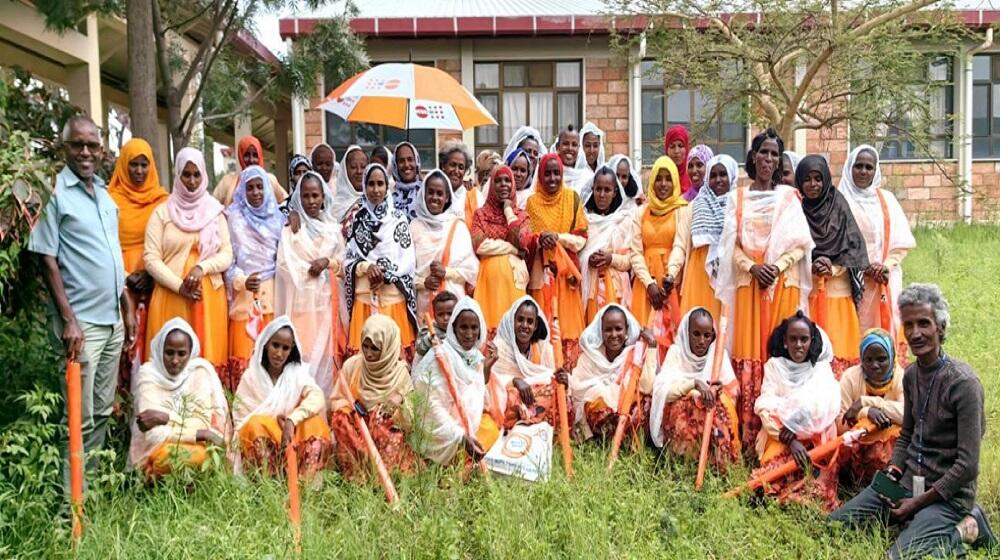Mendefera, the capital city of the Southern Region of Eritrea, became a beacon of hope and solidarity as representatives from the Ministry of Health, UNFPA, fistula survivors, and guests converged to commemorate the International Day to End Obstetric Fistula under the resounding banner of "Let No Mother Suffer: Fistula is a Preventable Condition."
Against this backdrop, the event served as a powerful platform to raise awareness about obstetric fistula, a devastating childbirth injury that continues to affect millions of women worldwide, and to advocate for urgent action to end this entirely preventable condition.
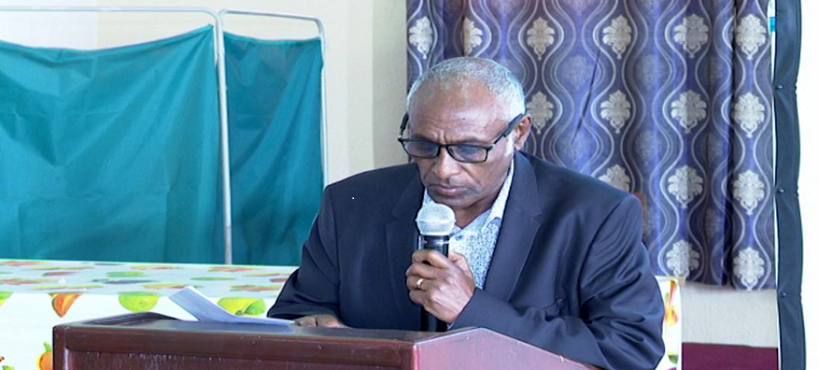
Dr. Andeberhan Tesfatsion, representing the Ministry of Health, noted the strides that the Eritrean government and its partners have made in raising public awareness on this debilitating condition, leading to a significant decrease in its prevalence over the years.
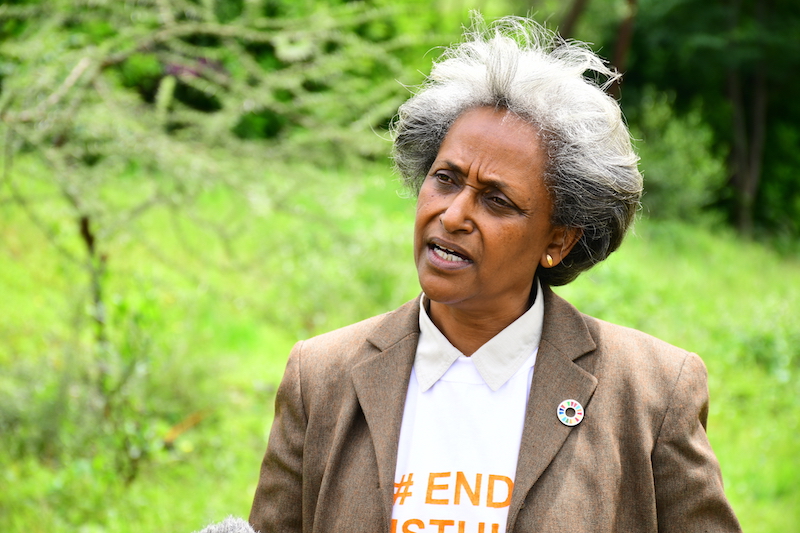
Fistula is not an illness, but a consequence of brutal and inhumane actions inflicted on women. However, its effects extend far beyond the individual, impacting entire families and the nation. Fortunately, fistula is a preventable condition. By discouraging harmful practices such as early marriage and female genital mutilation, and encouraging women to seek regular antenatal care and deliver their babies at health-care centres, we can eliminate this scourge. It is also vital that we address the issue of rape, a significant cause of fistula.
The gathering was marked by a powerful call to action, emphasizing the need for a collective commitment to provide comprehensive care, support, and rehabilitation programmes to help fistula survivors in Eritrea rebuild their lives and reclaim their dignity.
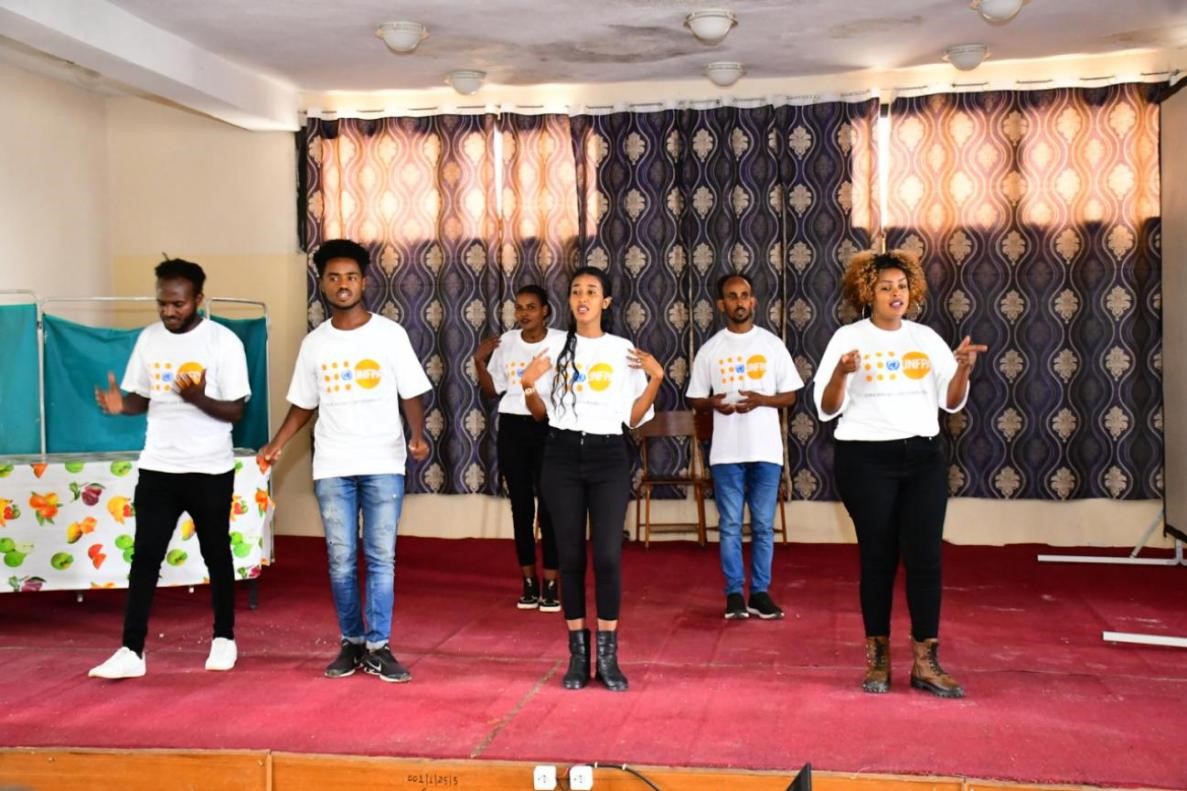
The powerful dramas and song performances at the event brought to life the struggles and triumphs of those affected by obstetric fistula, compelling all present to take action and support the vital work of those dedicated to its prevention.
The gathering was further emphasized by the personal stories of brave fistula survivors, who laid bare the physical, emotional, and social consequences of obstetric fistula.
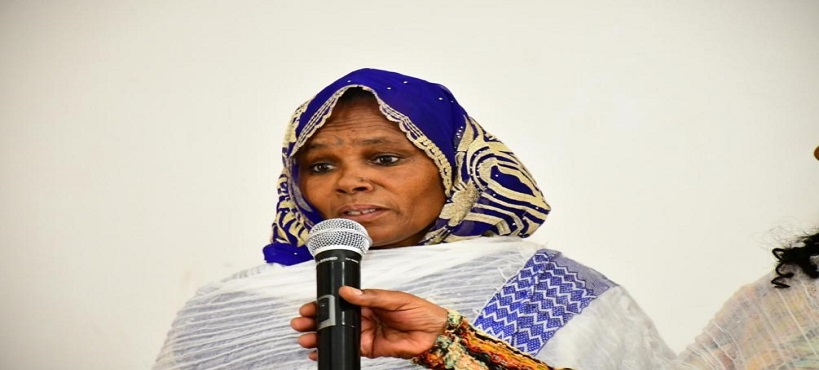
Segeneity sub-zone, Debub Region
"Amid the trials of my first childbirth in Adi-Keyih sub-zone, I was struck by the agony of fistula and the loss of my child. Though I survived, my condition was dire. In June 2010, I underwent a successful fistula surgery at the Fistula Repair Center in Mendefera. The care I received was truly exceptional, and I am grateful for the investments made by our Government and its partners, which have brought us much-needed relief. A mother is the beacon of light in a home, and without her, darkness prevails. I am heartened by the progress we have made in improving our health. I wish to express my deepest appreciation to our Government and its partners for their unwavering dedication to our well-being."
Their testimonies served as a reminder of the urgent need for action, compelling all to come together to provide comprehensive care, including surgical interventions, psychosocial support, and reintegration programs, to help fistula survivors rebuild their lives and regain their sense of agency.
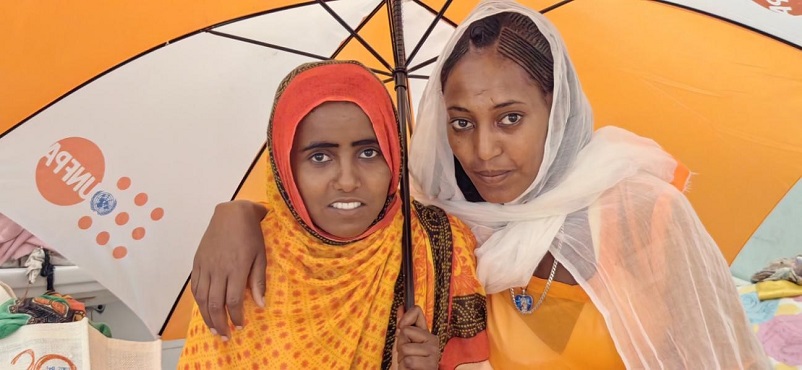
Nakfa, Northern Red Sea Region
"My name is Jimma Hamid, and I come from Nakfa in the Northern Red Sea Region of Eritrea. Despite the loss of my first baby during childbirth in 2019, I refused to give up hope and sought medical care at Mendefera Referral Hospital over four years. After undergoing seven surgeries within a span of 8-months, I am now on the verge of a full recovery. My thoughts are with the other women who are currently receiving treatment at the hospital, and I pray that they too will soon recover and return home in good health. Thanks to the skills training and academic courses offered at the hospital, I have achieved literacy in both Tigre and Tigrignia languages, reaching grade six in Nakfa. I am grateful for this opportunity, and I look forward to returning home to my family as a stronger and more empowered woman."
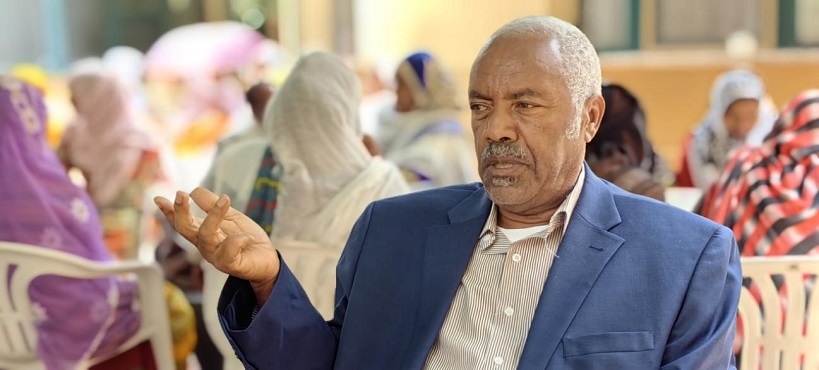
Head of Fistula Repair Center
Mendefera Referral Hospital
In the past 5-10 years, there has been a noticeable improvement in the situation regarding obstetric fistula patients. Previously, hospitals were inundated with hundreds of patients suffering from this condition. However, this has changed due to the implementation of increased facilities and heightened public awareness about the causes and effects of obstetric fistula. One example of this improvement is that we no longer expect to receive fistula patients from Zobas Makel or Debub. Instead, we have observed cases of obstetric fistula in areas located at the extreme north and south of the Debub Region, as well as in Tsorona. However, these occurrences are relatively rare compared to before. Overall, there has been a significant decrease in the prevalence of obstetric fistula throughout the country.
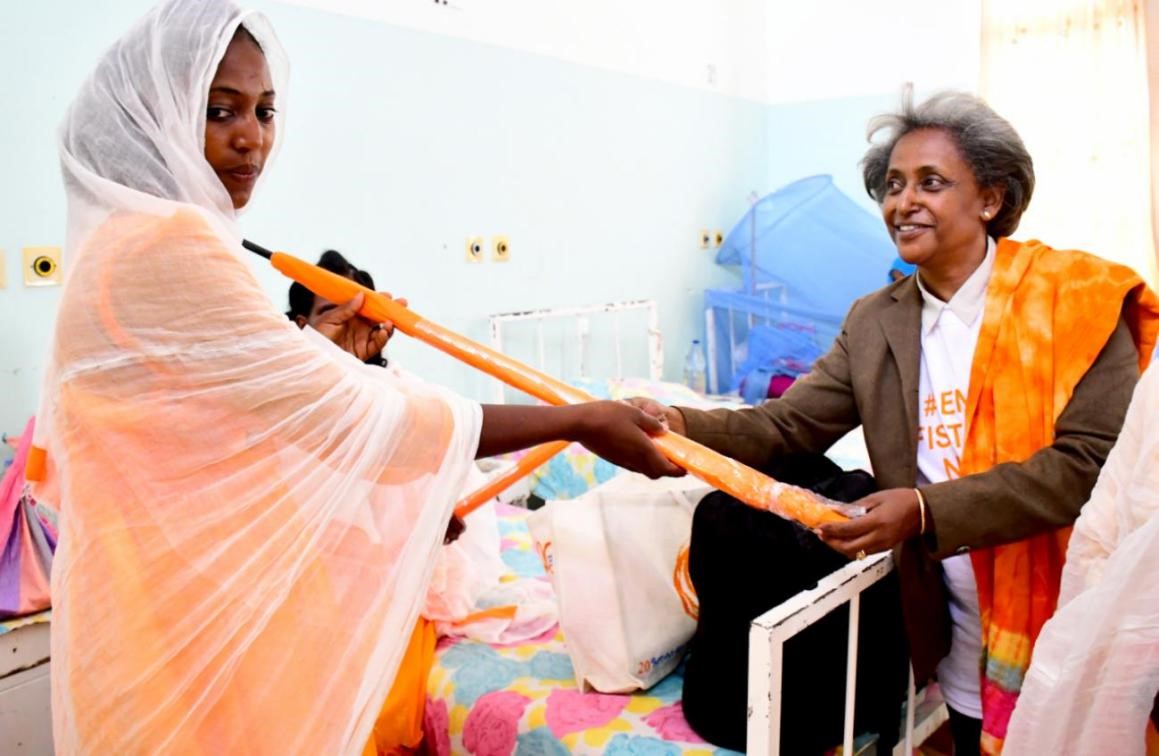
As part of the commemoration, visiting guests and members from the UNFPA visited the Mendefera Referral Hospital, home to the Fistula Repair Center. The visit provided attendees with an opportunity to witness firsthand the facilities and services available for fistula treatment.
Girls are not just individuals, but also mothers, sisters, and beloved partners. Their safety and future depend on the support of their parents, society, religious leaders, village elders, and the Government. It is the duty of all to come together and fulfill their responsibilities in ensuring their safety. It is unfortunate that many fistula survivors are underage and should have been in school. If given the opportunity to pursue education, they could have made significant contributions to their families and the nation as a whole.
Today, we mark 20 years of the advocacy against Obstetric Fistula, which began in 2003. However, it is important to note that in Eritrea, efforts to treat fistula had been underway even before the country gained independence. The liberated towns and villages of Eritrea had already been addressing this issue. The principles of unity, resilience, and values played a crucial role in guiding the entire population through the long and challenging journey during those difficult times and after independence. It is disheartening that it has taken us this long to prevent a condition that is easily preventable. Society as a whole, along with families and individuals, must make unwavering efforts to eradicate fistula from our communities. It is imperative that we intensify our endeavors to prevent the suffering endured by countless women and girls. This commitment is not a recent one but rather a longstanding pledge. We have vowed to eliminate obstetric fistula completely by the year 2030, aligning with the Sustainable Development Goals, which is only seven years away. I firmly believe that we can successfully achieve our objective of permanently preventing obstetric fistula by 2030.
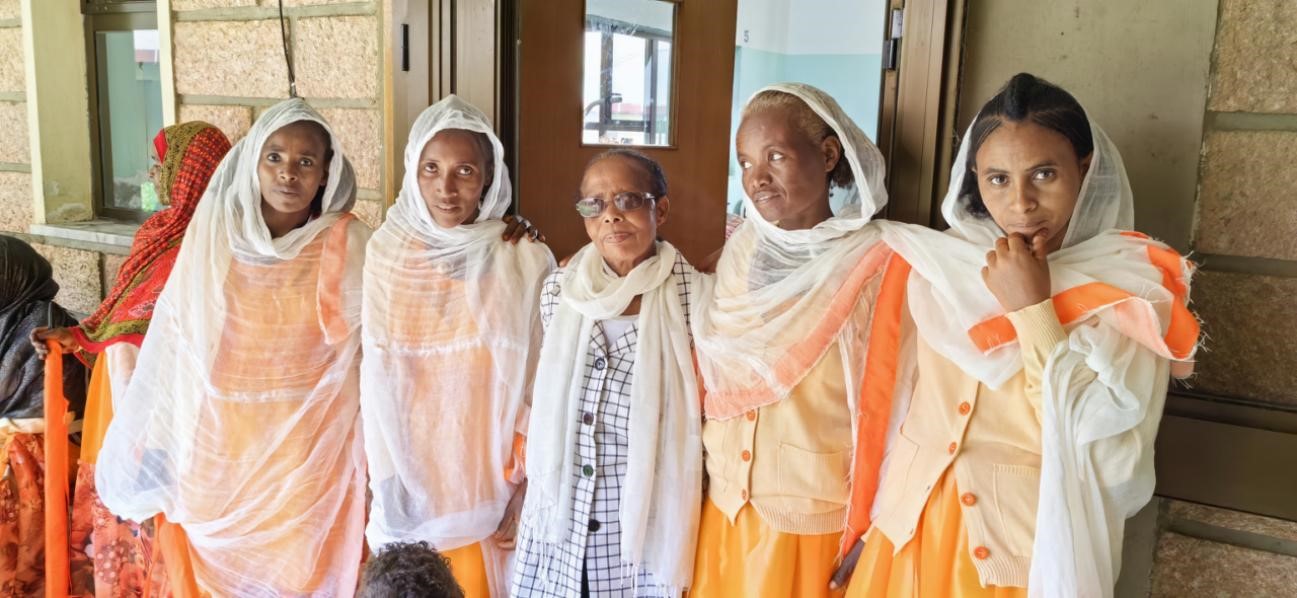
Meeting and engaging with patients at the center allowed for a deeper understanding of their experiences and needs, highlighting the importance of specialized healthcare facilities dedicated to fistula repair and rehabilitation.
"My name is Dahaba Romodan Kuku Ghana, from Koyta-biya district in Gash Barka. Though I have been blessed with three children, my fourth childbirth was beset by complications that led to the tragic loss of my baby. Fortunately, I was brought to the Mendefera Fistula Repair Center on February 24, 2023, where I received exceptional care from Dr. Habte Hailemelokot and Sister Yirgealem. Following a successful surgery to repair my fistula, I have now fully recovered and will soon be returning home. I extend my heartfelt gratitude to all who contributed to my care and helped me on the road to recovery."
The International Day of Obstetric Fistula commemoration in Eritrea is a powerful reminder of the transformative power of collective action. By addressing obstetric fistula comprehensively, Eritrea is leading the way towards a world where women can give birth safely and with dignity, free from the devastating effects of this entirely preventable condition.

